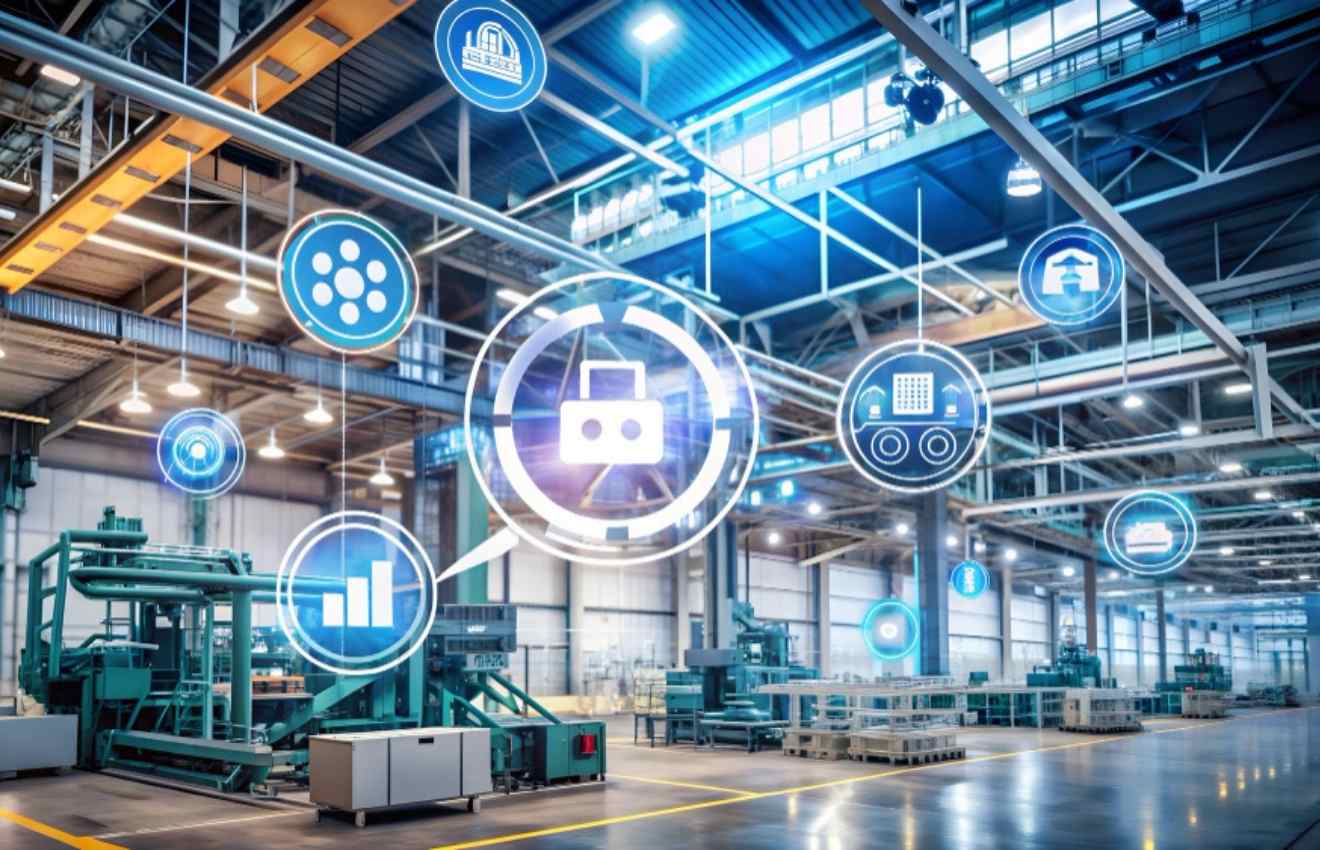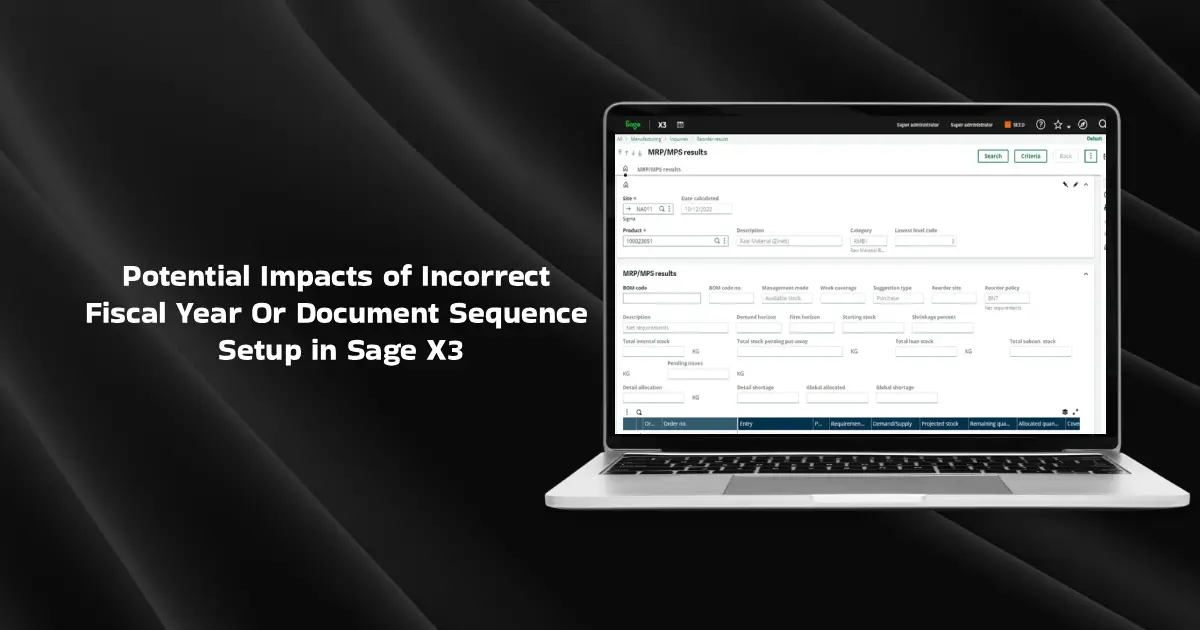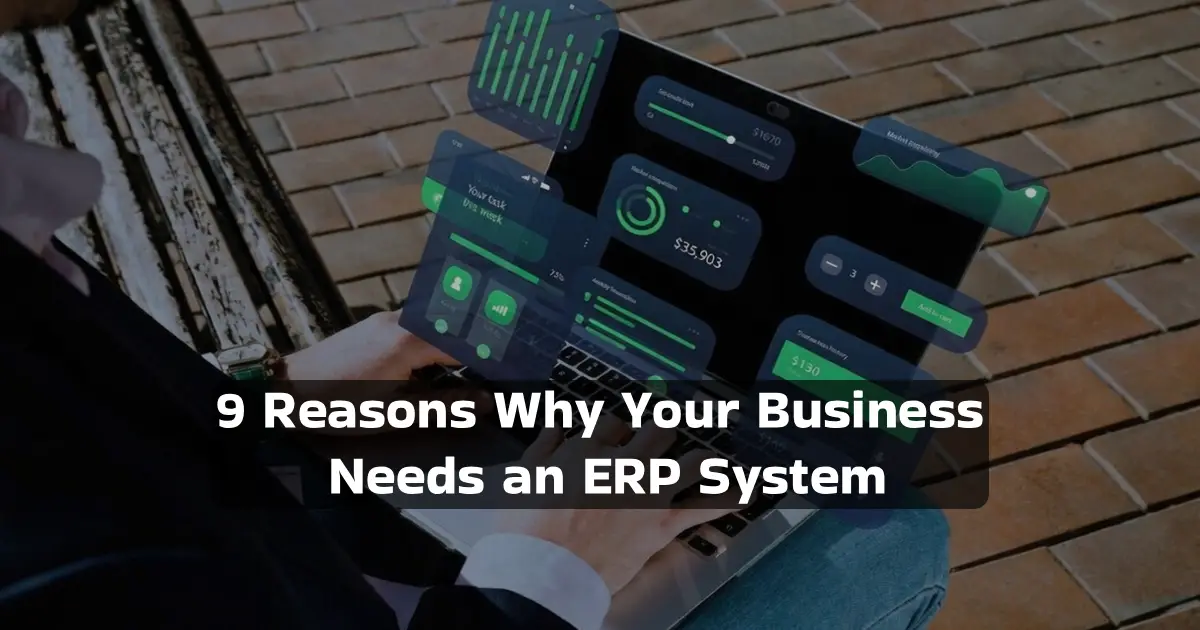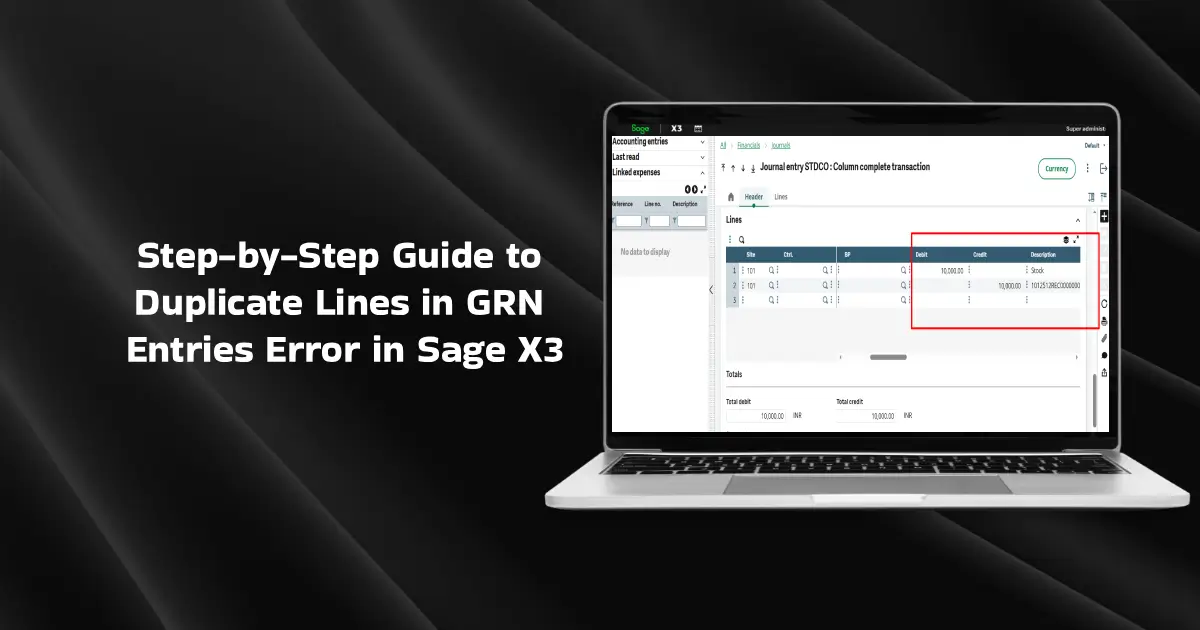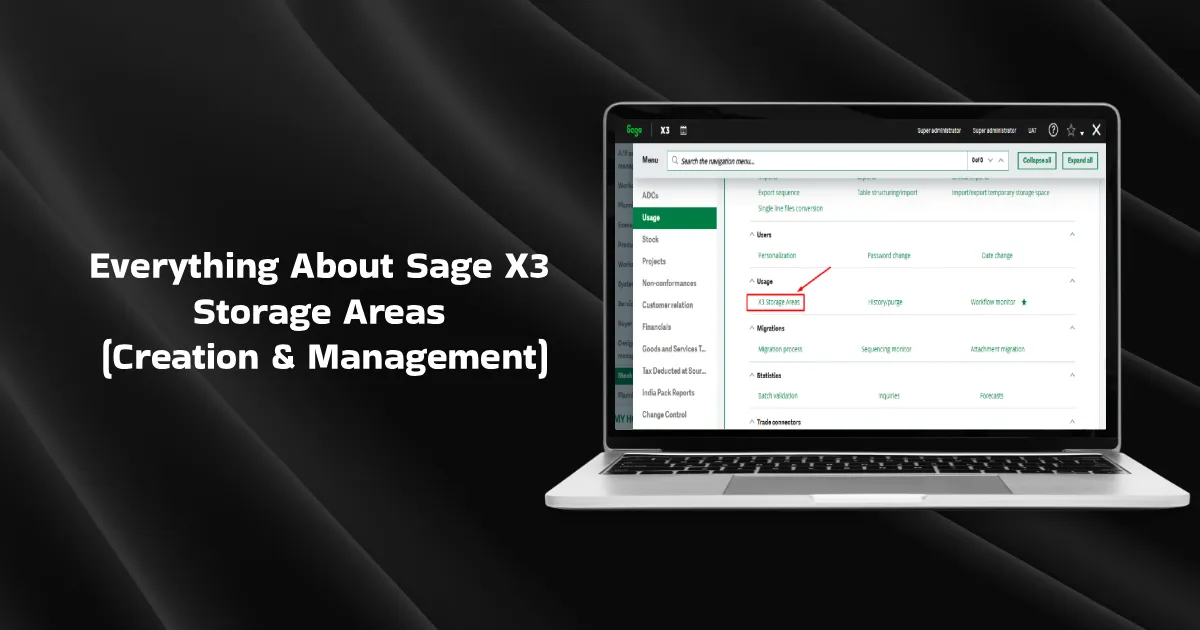Enterprise resource planning (ERP) systems are the control center of your manufacturing business, consolidating financial, operational, employee, vendor, and customer data, as well as proprietary business processes and product designs. Securing this information from cyber threats is critical to prevent data loss, hide your trade secrets from competitors, and protect your company against lawsuits for non-compliance.
What is ERP Security in Manufacturing?
ERP security refers to the comprehensive security measures manufacturers implement to protect sensitive data and information stored in manufacturing ERP software. Compromising security increases the risk of cyberattacks, which can severely affect business continuity and customer trust by halting production and disrupting production schedules.
Why ERP Security is Critical for Manufacturing Companies?
According to the CyberMedia Research report, 67% of Indian MSMEs have adopted digital tools; however, concerns about cybersecurity and skill gaps have slowed adoption. Clearly, manufacturers must take a proactive approach to safeguard their business from cyber threats.
Let’s explore the key reasons why manufacturers must ensure the security of their ERP systems-
1. Meeting Regulatory Compliance
After the implementation of the DPDP Act, 2023, Indian enterprises have come under increased scrutiny regarding external data protection. In the event of a data breach, victims and the relevant government body must be notified immediately, though this does not provide immunity from lawsuits. Failure to follow these norms has legal implications that not only lead to financial losses but also put the organization’s reputation at risk.
2. Protecting Intellectual Property
ERP systems serve as repositories of data on patents, trademarks, copyrights, and inventions, which must be protected at all costs to maintain a competitive edge. What’s more, when manufacturers sign confidential contracts and non-disclosure agreements with customers and vendors, they entrust automated ERP solutions to manage the contract lifecycle and store the sensitive information enclosed within.
3. Ensuring Operational Continuity
Manufacturers use different types of ERP, including hybrid systems that can have extensive customizations, patches, and integration with third-party cloud applications. If the security framework and data synchronization are mishandled, they pose a greater risk of cyberattacks, disrupting operations.
Top Data Security Risks in ERP Software
Many risk factors can affect the ERP security environment, including insider threats from employees, phishing and ransomware attempts, irregular patching, and misconfigurations.
1. Insider Threat
To maintain operational continuity, employers often rush to give access controls to new joiners without following due diligence. Unauthorized access to critical data may result in data theft. When employees leave the organization, failing to revoke their access can do irreparable damage, especially if they are connected with cloud ERP software.
2. Phishing and Ransomware Attacks
For seamless supply chain operations, smaller vendors are sometimes granted limited access to the ERP systems of larger customers. Since smaller vendors lack the resources for advanced security, cyberattackers exploit this weakness to breach their systems through phishing. Through that, they target the systems of larger customers with ransomware, locking their data until they pay the ransom.
3. Delayed Patching
ERP software solutions are often customized to meet the specific needs of the manufacturers, including integration with IoT devices & external applications. But they also open more doors for potential breaches if timely software updates and patching are not done. Some companies tend to delay updates, fearing compatibility issues and operational disruptions.
4. Inconsistent Configuration
System configuration plays a vital role in maintaining ERP security. Are you using the default system settings and default usernames and passwords? Are your permission controls poorly managed? Unused features, if not properly configured or secured, can also make your system vulnerable. Cyber criminals exploit these loopholes to gain access to the ERP system.
Best Practices To Ensure ERP Security
1. Multi-factor Authentication (MFA)
Multi-factor authentication uses additional security credentials to give system access to legitimate users. Apart from the standard username and password, you can include email verification, one-time password, hardware tokens, biometric scans, and other protective layers as part of your MFA.
2. Role-based Access Control (RBAC)
Follow strict policies when granting access in order to protect data and physical servers. For example, a standard user may only have the right to view data, whereas an admin can even modify data. If the user role changes within the organization, the access privilege must be updated accordingly. Conduct audits of the user and their devices given access. Withdraw the access when you have to.
3. Data Encryption Protocols
Your data can be at rest or in transit. Ensure that data at rest in databases and cloud servers is encrypted. In-transit data during file transfers and API communications must be secured via TLS and MFA. Use data masking and tokenization to conceal customer and vendor names and financial data.
4. Incident Response Plan
Develop a documented response strategy to contain damage from a data breach. Have a disaster recovery plan to quickly resume IT operations. Disconnect affected systems, disable remote access, and assess the extent of damage. Make sure your ERP solution is equipped to preserve evidence, record logging details, and maintain comprehensive audit trails to facilitate proper investigation.
5. Regular Audits & Backups
ERP security is not a one-time task. Conduct audits of your security protocols and integrations. Review the impact of past security improvement initiatives, and plan for improved security in the future. Audits can include policies on data backup and data removal, system updates, password changes, data privacy, access controls, and more.
6. Employee Training
Employees have a central role in ensuring ERP system security. Despite that, many employees lack adequate knowledge of security protocols to follow. Most companies have a standard practice of just emailing employees about data security rules. And that’s it. You must conduct regular training sessions to make system and data security a part of the organization’s culture.
Security in On-Premise and Cloud ERP Systems
Both on-premise and cloud ERP software offer unique capabilities with different risk exposure. However, the probability of risk significantly reduces with a well-crafted approach to system and data security. The choice of ERP model depends on the organization’s specific requirements.
• On-premise ERP software
The organization has full control over the security of physical servers, applications, and configurations. But they need to have a skilled IT team that coordinates with the ERP vendor to manage patches and system updates. If the organization lacks the right resources or fails to prioritize data security, maintaining system stability can become challenging.
• Cloud ERP software
In cloud ERP, the IT infrastructure, maintenance, and updates are managed by the ERP vendor, while the organization controls the business data and user access. Although cloud ERP systems offer robust data security, faulty API integrations and weak access control policies can still make your system vulnerable. It is worth noting that leading cloud ERP vendors have strong disaster recovery capabilities.
Conclusion
The landscape of ERP system security & maintenance is evolving, with advanced threats emerging that the manufacturing industry needs to be prepared for. To begin with, focus on the security fundamentals. Follow best practices in system security and data management, and continuously improve your security measures.
Sage X3 is the cutting-edge ERP solution that streamlines all your manufacturing processes and aligns with your organization’s growth strategy. By rigorously integrating the latest security mandates into your daily workflows, Sage X3 offers the trust and reliability every manufacturer seeks to scale their operations confidently.
ERP Security FAQs
1. What is ERP Security?
ERP security is an umbrella term for the security policies and technologies manufacturers use to protect their ERP systems and safeguard their data from hackers and unauthorized parties.
2. What is the Importance of ERP Security?
ERP systems manage multiple business functions across purchasing, inventory, production, finance, and sales. They hold extensive transactional data, customer and vendor details, and confidential analytical reports. Therefore, the security of these systems is critical to combat cyber threats.
3. What are the Emerging Trends in ERP Security?
The emergence of AI-led automation is enabling faster threat detection and response mechanisms. Organizations are prioritizing data security by enforcing strict rules about data access, especially as cloud and hybrid models become common. The use of blockchain technology is further boosting security through advanced cryptography, preventing single points of failure.
